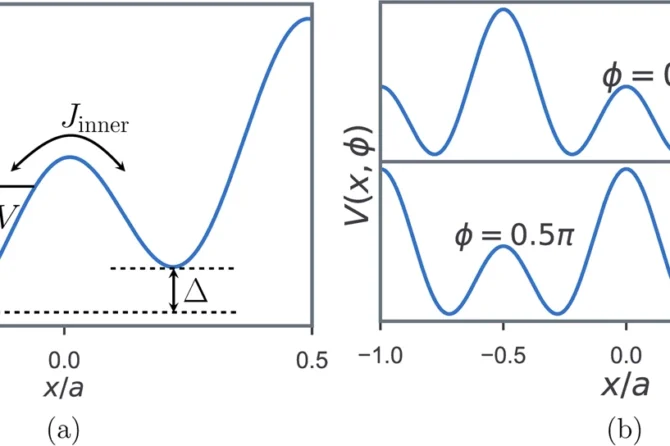The quantum walk is the quantum-mechanical analogue of the classical random walk, which offers an advanced tool for both simulating highly complex quantum systems and building quantum algorithms in a wide range of research areas. One prominent application is in computational models capable of performing any quantum computation, in which precisely controlled state transfer is required. It is, however, generally difficult to control the behavior of quantum walks due to stochastic processes.
A research team at Hiroshima University has unveiled the mechanism underlying the directional decision of each quantum step and introducing a way to potentially control the direction of movement.
In classical systems, the coin directs the walker in space: right or left. In quantum systems, a coin is infinitely less reliable, since the walker operates both as a particle stood in one space and as a wave stretched out in every possibility across time.
This time-dependent coin can shift the walker’s position, the researchers found, but the wave characteristic of the walker obscured how much physical space the coin controlled.
The researchers determined that how quickly the coin flipped directly affected how quickly the wave moved, resulting in some control of the walker’s movement. (Phys.org and Hiroshima University)
The results has been published in Scientific Reports, a Nature Research journal.



